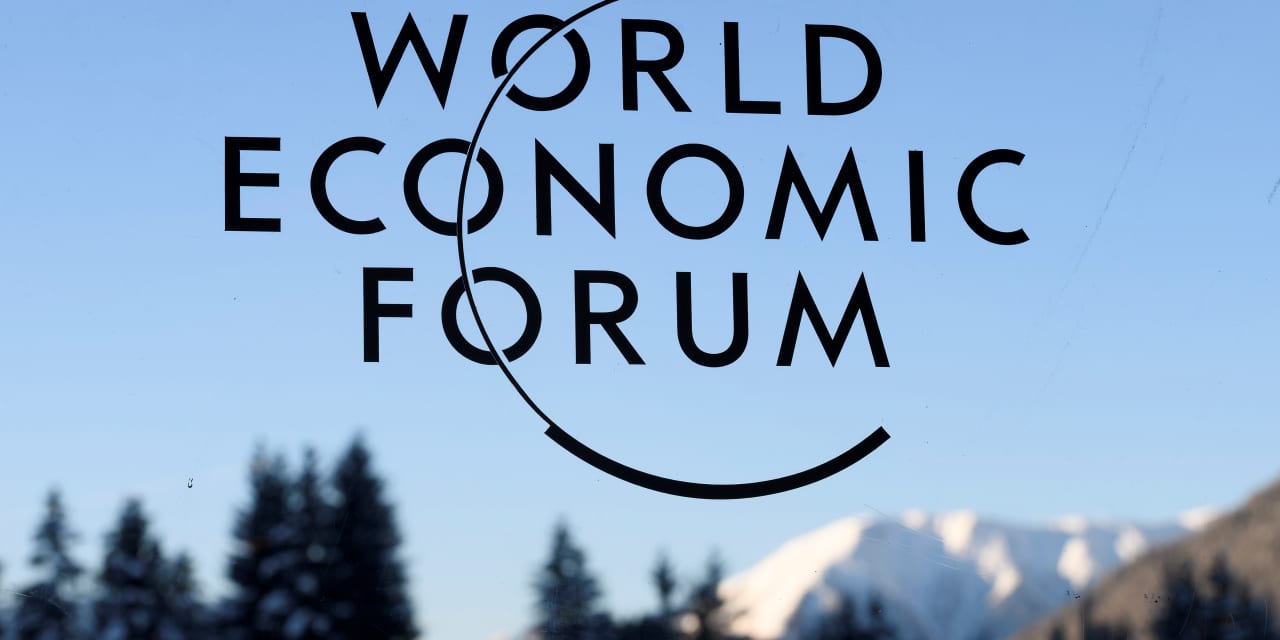DAVOS, Switzerland—Leaders from across the world are descending on this mountain town to face a fresh set of challenges—and strike deals—as the 54th annual meeting of the World Economic Forum gets under way.
The theme of this year’s gathering, a venue for sharing ideas and finding consensus on pressing issues, is ”rebuilding trust.” Whether the planet’s elite are up to the job isn’t clear, but readers can be sure that Barron’s journalists are here and ready to tell the story as it happens.
This is what to know as the flurry of panel discussions, meetings, networking, and parties gets under way.
Will Joe Biden Be in Davos?
No, though Secretary of State Antony Blinken and national security adviser Jake Sullivan will be there. Their presence is understandable given tensions in the Middle East, and the forum’s past success in helping to reduce international tensions.
Wars rage on in Ukraine and Gaza and the U.S. and U.K. recently launched airstrikes against Yemen’s Houthi militants, who have targeted shipping in the Red Sea.
Other high-profile world leaders in attendance include French President Emmanuel Macron and Chinese Premier Li Qiang. Argentina’s new president, Javier Milei, will also appear publicly, as will European Commission President Ursula von der Leyen, and the heads of state from a number of African countries, including Kenya’s William Samoei Ruto.
It’s a who’s who in the world of business and finance, including institutions like the World Bank, International Monetary Fund, and World Trade Organizations. Their leaders will all be in Davos.
Expect to hear from CEOs such as
JPMorgan Chase’s
Jamie Dimon,
Microsoft’s
Satya Nadella, and
Pfizer’s
Albert Bourla as well.
What Will Be Covered at the World Economic Forum?
As in previous years, climate change remains a priority—and a pain point for a conference that may be the world’s largest congregation of billionaires. Criticism comes from both sides: Activist Greta Thunberg famously berated the Davos crowd, but a push toward sustainable investing by
BlackRock
and other financial companies has also come under fire as “woke capitalism” by many conservatives. There remain an overwhelming number of panels focused on addressing the climate crisis, alternative energy sources, and protecting the biosphere.
The global economic outlook also looms large. While interest rates in the U.S. and Europe are likely at their peak, the effects of higher borrowing costs are still rippling around the world. Many developing economies are feeling the pinch. Davos panels this year include “the high rate reality” and “pulling debt back from the brink.”
While the Russia-Ukraine war has been an issue at the conference since 2022—Russians had a longstanding presence in Davos—a new conflict has emerged in recent months. Ukrainian President Volodymyr Zelensky will deliver remarks in person, but Israel’s war with Hamas and the risks of a regional conflict now hog the spotlight, with panels like “Middle East conflict: what Is the endgame?”
Investors will also be unsurprised that artificial intelligence has an outsize footprint in Davos, where OpenAI CEO Sam Altman is scheduled to speak on “technology in a turbulent world.” AI has been one of the biggest market trends of the past year, and that shows no signs of stopping at Davos. Tech CEOs and politicians alike are set to discuss the benefits—and risks—of the transformational technology.
What Can Davos Achieve?
A byword for global elites, Davos does face the pitfalls of other conferences where leaders make grand pronouncements that can look like empty promises. But there remains hope of progress and intrinsic value in bringing together the world’s most powerful people to work on making incremental progress on critical issues. Public panels also often play second fiddle to behind-the-scenes and after-hours talks.
It shouldn’t be forgotten that the five-day forum has played an integral role in global politics since it was founded in 1971. Greece and Turkey avoided war over Cyprus in the 1980s, helped in no small part by negotiations at WEF. As apartheid drew to a close in South Africa, Nelson Mandela and F. W. de Klerk shook hands in Davos in a symbolic moment. And in 2000, WEF launched the Global Alliance for Vaccines and Immunization, which recently helped ship more than one billion Covid-19 vaccines around the world.
Write to Jack Denton at [email protected]
Read the full article here




